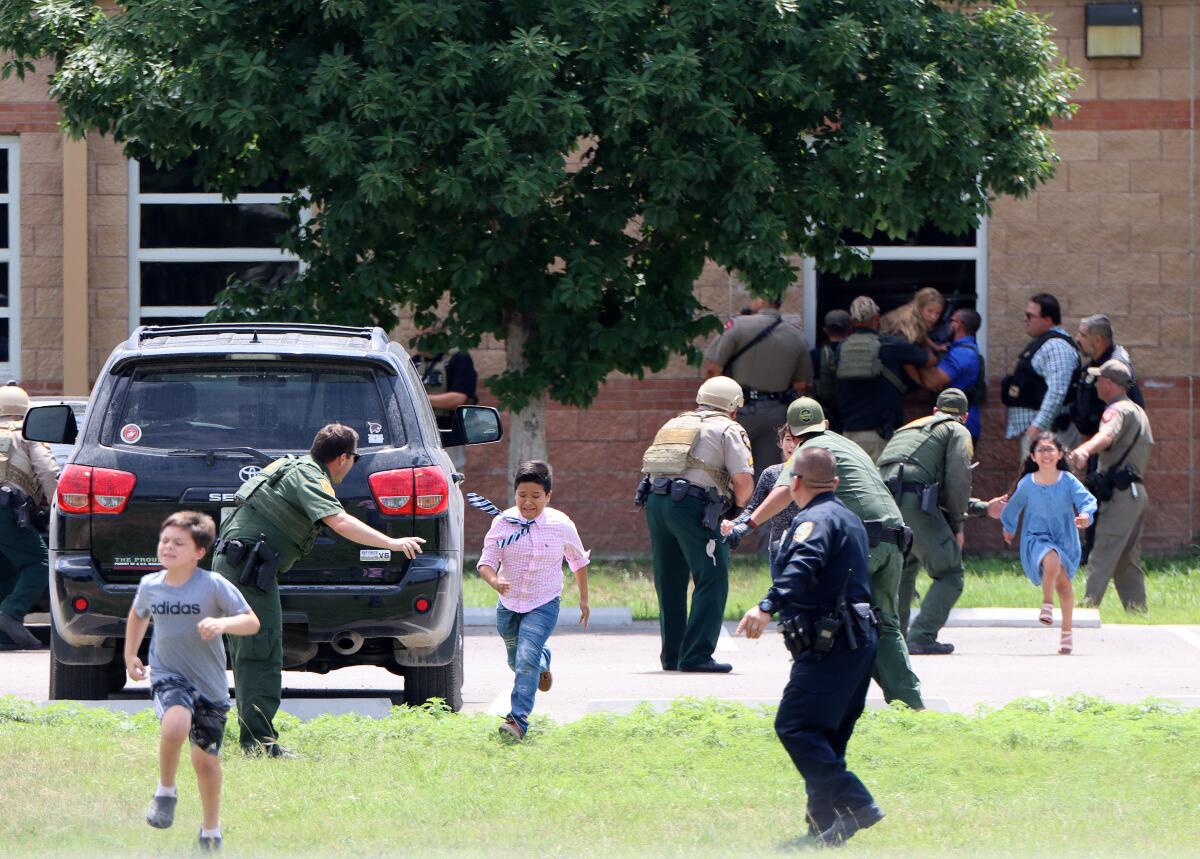Senate clears key vote hurdle on gun bill

- Share via
WASHINGTON — The Senate voted Tuesday evening to start debate on a bipartisan effort to combat gun violence, a sign of progress for what could be the most substantial gun policy to get through Congress in more than three decades.
The procedural vote was approved 64 to 34, with 14 Republicans joining all Democrats to advance the bill and two Republicans not voting.
By clearing the 60-vote threshold needed to overcome any filibuster, the measure seems assured final passage assuming there are no last-minute vote changes.
The bill would increase background checks for would-be gun buyers ages 18 to 21 by providing law enforcement more time to do the checks and incentivizing states to provide juvenile records to the analysis.
It would close the “boyfriend” loophole by prohibiting anyone convicted of abuse against a spouse or domestic partner from buying a gun.
The plan would crack down on gun trafficking and straw purchases as well as fund $750 million to incentivize states to create “red flag” laws that would allow weapons to be temporarily taken away from people who show a risk of violence against themselves or others.
There is also about $15 billion for mental health programs and school safety.
The bipartisan negotiators finalized the bill text just hours before the vote, following nearly a month of negotiation. Final talks centered around the closure of the “boyfriend” loophole and defining a romantic relationship. The final text says the relationship must be romantic or intimate in nature, not business or casual “acquaintanceships.”
Lawmakers are hoping to get through a series of votes on the bill by the end of the week and the start of a two-week recess.
The legislation is far from what President Biden and many Democrats hoped to see in a gun bill, such as a ban on assault rifles.
But Sen. Christopher S. Murphy (D-Conn.), who led the negotiation for Democrats, praised it because it “will save countless lives and finally break a 30-year political logjam” on a contentious policy issue.
Sen. John Cornyn (R-Texas), who led the debate for Republicans, said they “have found some areas where there’s space for compromise.”
But in a sign of the political tension surrounding any Republican who supports a gun measure, Cornyn was loudly booed at his state’s GOP convention over the weekend because of his work on the bill.
The National Rifle Assn. also came out against the legislation, saying it “does little to truly address violent crime while opening the door to unnecessary burdens on the exercise of 2nd Amendment freedom by law-abiding gun owners.”
Senate Minority Leader Mitch McConnell (R-Ky.) pushed back on that idea, saying the legislation is “a common-sense package of popular steps that will help make these horrifying incidents less likely while fully upholding the 2nd Amendment rights of law-abiding citizens.”
Cornyn and Murphy worked primarily with Sens. Thom Tillis (R-N.C.) and Kyrsten Sinema (D-Ariz.), although their group expanded to 20 members: 10 Republicans and 10 Democrats.
The back-to-back mass shootings last month in Buffalo, N.Y., and Uvalde, Texas, generated a rare opening for the bipartisan negotiations.
Unlike in the wake of other mass shootings, when Democrats immediately called for ambitious gun policies that Republicans opposed, such as banning assault weapons, lawmakers agreed to open the door to smaller-scale reforms.
Republicans, jolted by the deaths of 19 fourth-graders and two teachers in Texas and the racist motives behind the shooting in Buffalo, had signaled they would come to the table.
More to Read
Get the L.A. Times Politics newsletter
Deeply reported insights into legislation, politics and policy from Sacramento, Washington and beyond. In your inbox twice per week.
You may occasionally receive promotional content from the Los Angeles Times.










